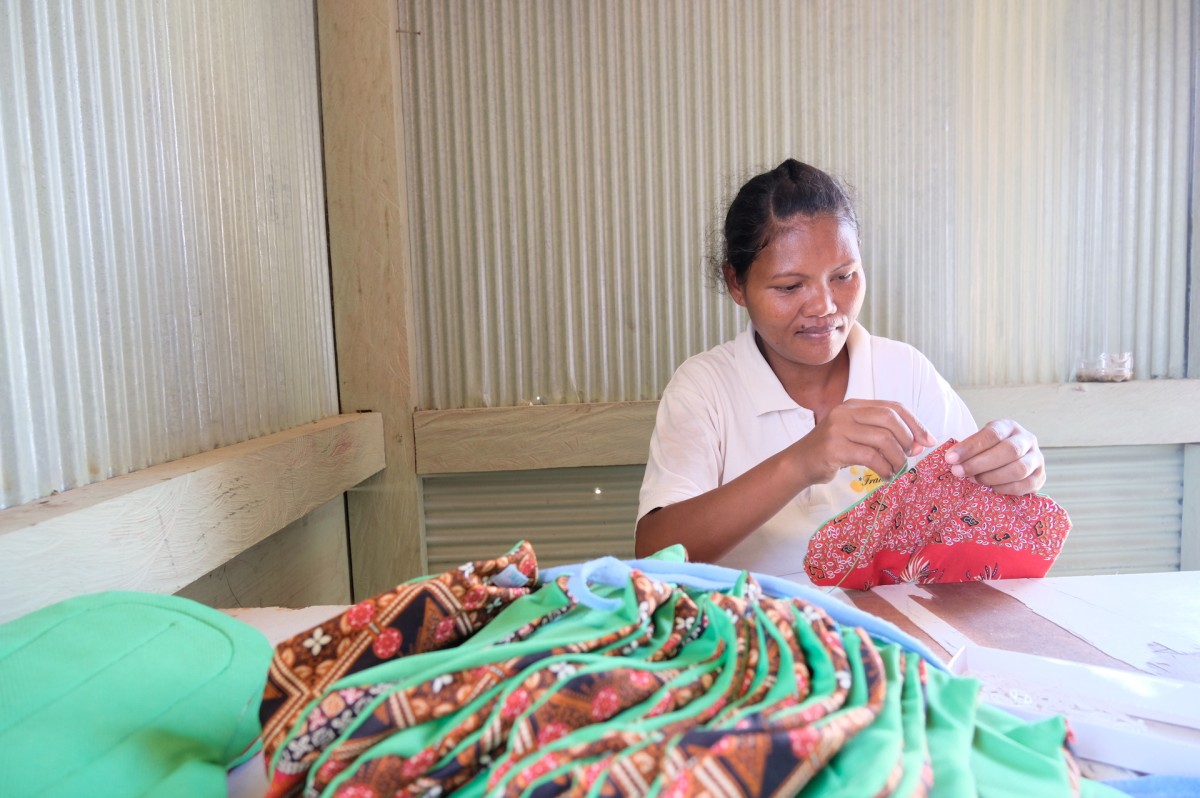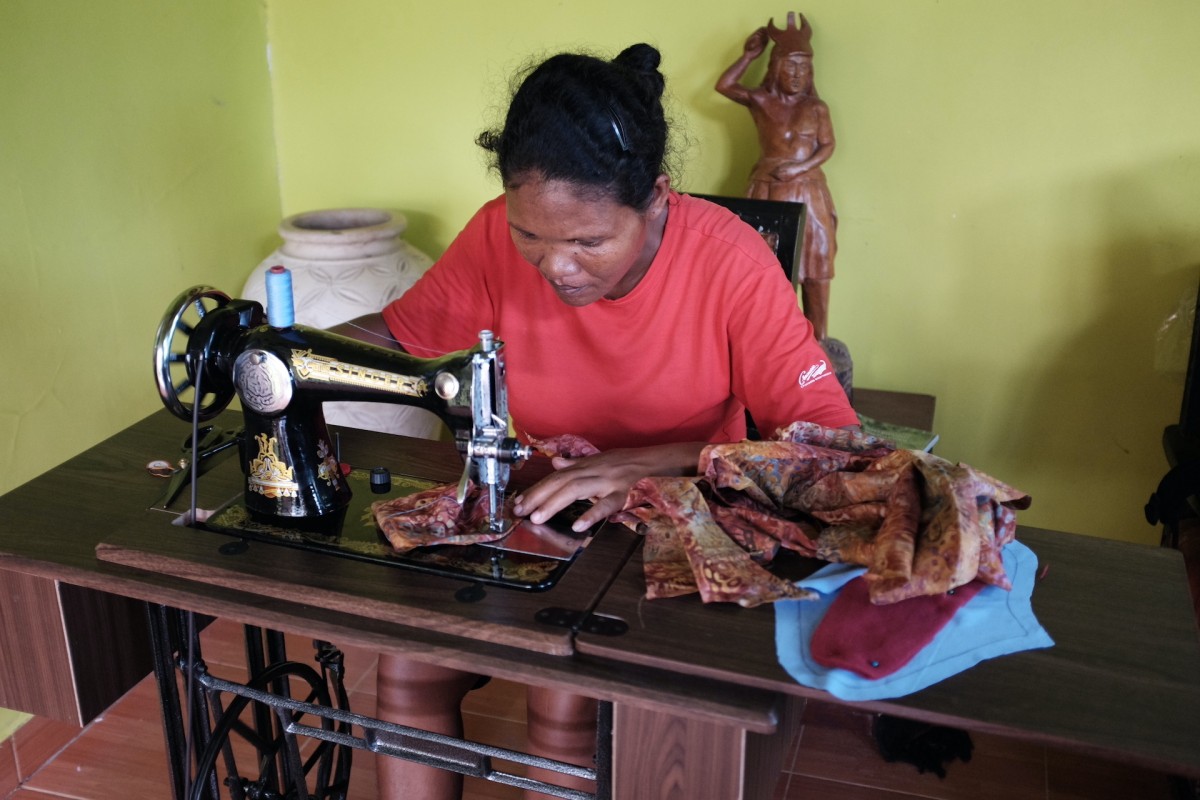Avenita Surya learned how to make reusable pads and learned more about menstruation
Information as empowerment: Avenita Surya learned about menstrual health and now has gained not only knowledge, but also a business.

No room for questions
Menstruation is still a taboo. Because it’s not talked about openly in Asian and African regions, many women and girls are uninformed about their menstrual cycle.
The same goes for Avenita Surya, originally from Flores Island, Indonesia. She had her first menstruation at 12 years old. She was not afraid as her mother has explained her about it: she told her daughter to prepare a cloth to absorb the blood, to stay away from boys and men and to not wash her hair during menstruation. Avenita, mute since birth, was not able to ask many questions.
Manufacturing reusable menstruation pads while being educated about menstruation
When the pandemic hit in early 2020, it impacted the income of her family. Avenita and her husband both lost their jobs. It was a stressful situation for her, given her physical condition and lack of financial support. She was invited to join the Perfect Fit tailor training conducted by Kopernik in Labuan Bajo. She was trained to manufacture reusable pads together with other female tailors and was educated about menstruation.
No more taboo
This was a big relief for her during the pandemic, as she now has a new job to help the family income as well as new knowledge about menstrual health. Avenita now understands that it is okay to wash her hair during menstruation and that it is also important to stay clean and healthy during menstruation. The programme includes a Facebook discussion group, where all the questions she had during her teenage years were answered, including those about closeness with boys and men during menstruation, as long as there is consent among those concerned.

Knowledge, income and empowered
Avenita is now able to finance her children’s education and save money for the family. Her knowledge about producing reusable pads and SRHR (Sexual Reproductive Health & Rights) topics gives her great confidence. The contact she has with the other female tailors makes her very happy, and she says that these women feel like a new family, a new home, and she is grateful for that. She hopes that the work of the Perfect Fit programme can be sustained so that many disabled women like her can be reached and empowered.
Avenita Surya learned how to make reusable pads for her menstruation, working in a team, and has new knowledge on reproductive health.

